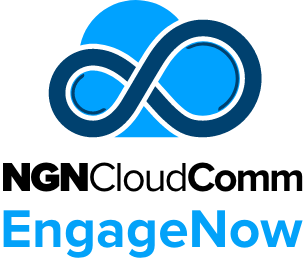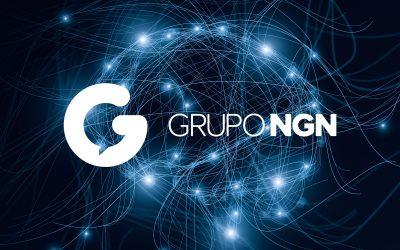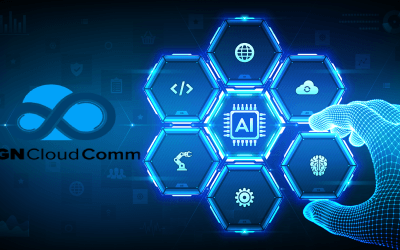
The talk of Artificial Intelligence or AI enhancements in the Contact Center has been on the rise recently. I am naturally a bit of a skeptic and having spent 15 years in the technology industry before entering the Contact Center industry, I pushback when I see buzz word headlines. One specific recent article included the following:
Many call center services are also implementing artificial intelligence to better serve their client companies’ customers. For call centers, AI has made a big impact with interactive voice response (IVR), the automated phone trees that many customer service departments use to improve efficiency. AI-enabled IVR tools can better interpret customer accents and intonation and assign incoming calls to the appropriate agents.
Let us take a closer look at the reality of using “artificial intelligence” to improve an IVR.
First what exactly is artificial intelligence? A common definition of AI is “machines capable of performing tasks that typically require human intelligence”. That is a broad definition that could technically make a lot of things “AI”. Are calculators that do the human intelligence of math calculations AI? What about a remote control that allows you to change your TV channel more easily? Most people would not consider these technologies that have been around for decades to be AI. But it becomes less clear where that line exists as existing technologies are applied in new ways or to new industries.
If you directly ask someone to explain or define AI – what most people describe is a combination of machine learning, predictive analysis, or simple algorithms. Each of those can be considered subsets of AI but referring to them individually as AI gives them a sense of sophistication that may not be deserved. Because it is poorly defined and not widely understood, AI has become a buzz word to represent any kind of automated system.
Looking deeper at this specific example of AI enhancing an IVR, consider how “AI” would handle interpreting accents and intonation. This sounds very impressive but some of my first questions are: how does the system tell if someone is angry without any baseline? The evidence for the accuracy of polygraphs or “lie detectors” has been inconsistent and any polygraph exam requires a trained and certified human examiner who sets a baseline as part of the process. Another question is how does this “AI” system handle multiple languages? A recent MIT review found that a popular AI hiring software wasn’t even capable of recognizing candidates who didn’t speak English. This doesn’t even take into consideration intonation or regional accents let alone aggressive vs passive personality styles.
For the sake of argument, put all those questions aside and say that despite evidence to the contrary, there is AI that does in fact accurately recognize the attitude of a caller. My final question is – so what? The action of the AI is to separate those callers to different queues based on that analysis. So as a contact center you need to consider what is the actual value of that AI driven action? And what is the potential additional cost of putting a system in place that is inconsistent and inaccurate in how it evaluates and queues your inbound customers?
IVRs have been assigning customers to different queues based on feedback for years and no one has thought to call it AI. The only thing this AI is doing is “assign[ing] incoming calls to the appropriate agents.” So, a customer calls in and say the AI recognizes this customer is angry, livid in fact and looking to make whatever agent gets on the phone a target for verbal abuse. Knowing this before the agent takes the call is helpful – and certainly if you have some agents that are specifically trained in de-escalation you would want to route the customer to that agent.
But what happens when your de-escalation agents (or singular – agent) are already on a call? Do you make this customer you already know is angry wait longer to get to one of those specially trained agents? Or do you end up queuing them up for the next available agent anyway? As you consider the real-world application of adding so called “AI” technology to your IVR I believe it is likely the costs will outweigh any actual value.
NGNCloudComm has a simple to set up scoring system that automates this very process – allowing you to have preferred agents who take on customers with a specific need that is recognized by our IVR system. Customers are not forced to spend extra time on hold if all the required top skilled agents are unavailable, and slightly less qualified agents can be assigned to answer the call. Your contact center can even have a “time delay” of how quickly the qualification requirements are modified while the customer waits to be connected. I’ve never thought to refer to it as “artificial intelligence”.
I’m not saying there isn’t any AI in contact center software nor am I saying that every reference to AI is wrong. What I am saying is that AI is a tool that needs to be used in proper context to be successful and that consumers need to be able to separate real AI from misleading marketing and buzz word headlines.
What is ChatGPT?
ChatGPT is a large language model trained on a massive trove of information online to create its responses. It is a chatbot in the sense that it provides automated responses, but instead of a simple keyword search and rules-based system, it uses machine learning and AI to improve its responses and functionality. It is developed by a company called Open AI and was initially released in November of 2022. If you haven’t already given it a try you can go here to create a free account and start using this impressive system.
ChatGPT hit 1 million users within 5 days and since November it has broken into pop culture including being mentioned in a cell phone ad and has become a nightmare for teachers concerned with students cheating.

I Asked the Open AI ChatGPT “What is the best CCaaS?”

ChatGPT is not as previously discussed “BS”. You may have already heard about ChatGPT and maybe you have already given it a try. Let’s discuss the difference between AI Chatbots and Rules Based Chatbots and then go into how ChatGPT answered my question “What is the best CCaas?”
Difference Between AI Chat and Rules Based Chat
Most chatbots are rules based. The chatbot will use keyword searching to select a pre-written answer from a list. For example, a user might type in “What time are you open tomorrow?” and the chatbot will recognize the keywords ‘time’, ‘open’, and ‘tomorrow’ to then select a prewritten reply with the company’s schedule. Rules based chatbots are a great way to allow customers to get answers to common questions without taking up the time and energy of an agent. However, these types of chatbots are limited as they can only use pre-written responses that are tied to keywords. If a rule based chatbot can’t find a keyword it won’t know how to respond and if the pre-written response isn’t what the customer is looking for the chatbot isn’t able to help them.
AI chatbots make use of machine learning and NLP or Natural Language Processing to better understand what customers are asking for and to have a much larger list of possible responses and even a dynamic list of responses that can grow and improve over time.
History of Chatbots
Any discussion of AI history must begin with Alan Turing and his paper published in 1950 Computing Machinery and Intelligence. This paper generated the concept of the “Turing Test” or Imitation Game to test if a computer could exhibit behavior that would make it impossible to tell whether or not it was a human.
You might be surprised to learn that the first ever chatbot was developed in 1966 by an MIT Professor and Computer Scientist Joseph Weizenbaum. ELIZA, named after the main character in Pygmalion, was rules based system that used keywords to trigger a prewritten trigger or reply. In 1972 a Stanford Professor, Kenneth Colby, built PARRY which went through variations of the Turing Test and also had communications with ELIZA. Jabberwacky was developed by British developer Rollo Carpenter in 1988 and published online in 1997. In 2008 it was updated and published as Cleverbot.
IBM Watson maybe best known for its performance on the game show Jeopardy! was first released in 2006. That paved the way for voice recognition focused chatbots such as Siri released in 2010 and Alexa in 2014. In 2016 Facebook allowed developers to create Chatbots for use in its Messenger system and in only 2 months more than 10,000 bots had been published.
Today, as seen with ChatGPT, the focus is on moving beyond rules based chatbots and focusing on chatbots using machine learning and natural language processing.
ChatGPT’s Answer to my Question
So what did ChatGPT have to say about the best CCaaS? Spoiler alert, it did not offer up any specific company or product names. But that doesn’t mean it wasn’t still a very good answer. Here is what ChatGPT had to say:
CCaaS, or Contact Center as a Service, refers to a cloud-based service that provides a comprehensive suite of tools and services for managing customer interactions and communication channels. The best CCaaS solution for a company will depend on its specific needs and requirements. Some factors to consider when choosing a CCaaS solution include:
- Scalability: A CCaaS solution should be able to handle the company’s current and future customer volume.
- Feature set: The CCaaS solution should offer a range of features that meet the company’s needs, including call routing, IVR, CRM integration, and more.
- Integration: The CCaaS solution should be able to integrate with the company’s existing systems and processes.
- Customer support: The CCaaS provider should offer reliable and responsive customer support to help with any issues that may arise.
- Price: The CCaaS solution should offer good value for money, with a pricing model that fits the company’s budget.
Some popular CCaaS providers include Five9, Genesys, and RingCentral. It’s important to carefully evaluate the features and capabilities of different CCaaS solutions to find the one that best meets the needs of your company.
How Does NGNCloudComm Stack up to ChatGPT’s Advice?
- Scalability: NGNCloudComm can be run as a Cloud solution, a Premise solution or a Hybrid solution to support Contact Centers as small as 10 seats and as large as over 10,000 seats.
- Feature Set: True Omnichannel capabilities supporting inbound and outbound channels including voice, chat, email, SMS text, WhatsApp, and social media. Optichannel allowing the same agent to use multiple channels in a single interaction with a customer. Open API systems that can connect to any CRM or third-party system.
- Integration: NGNCloudComm works with popular CRMs including Salesforce and Hubspot but where it really stands out is its ability to quickly integrate with any open API.
- Customer Support: Check out our more than 99% 5 and 4 star rated support team feedback and high uptime results
- Price: We will match or even guarantee to beat any price from another CCaaS competitor






